Napoleon never heard “Bonaparte Crossing the Rhine,” because, well, it’s not French. The tune might be Scottish. But probably not. Some say it’s an American march. Maybe Irish instead. Or not.
One thing is certain: Definitive derivation of old fiddle tunes is not the hill you’ll want to die on. Most of the best-loved melodies have at least a half dozen different names, each usually with its own equally murky history.
Whither
This particular tune is considered traditional, and the first part shows up in several melodies from Ireland such as “Centenary March" and "An Comhra Donn.”
A group called The Black Irish Band (who are from Sonora in California, so there’s that…) recorded the song in the late 1990s as the Scottish “New Caledonian March.” And, in fact, back in 1837 George Willig of Philadelphia published it as “Caledonian March.” (Guess it wasn’t “New” then….)
But the tune also is melodically similar to English hornpipes called "Durham Rangers" and "Sherwood Rangers."
Meanwhile in America, folklorist Samuel Bayard found the same melody was a common march tune in his primary collecting area of western Pennsylvania, circulating in the 1940s under various names, such as "Bruce's March" and "The Star of Bethlehem." A Keystone State musician told Bayard it was called "Ranahan's March," which he said commemorated a local bandmaster.
North Carolina Fiddler Mack Snoderly has played a slow, dirge-like version of it, and he calls it "Dying on the Field of Battle.”
But Bonaparte?
So, how the heck does Napoleon get into this tangled tale?
That was exactly the question pondered recently in an interesting bit of gab on an online discussion board called Banjo Hangout.
It all started when a visitor posted a message with the title, “Bonaparte Crossing the Rhine” and noted, “I was wondering which event the title of this tune implies.”
After a number of fits and starts in the replies from various readers, banjoist Don Borchelt got down to cases. Noting that Napoleon’s army did cross the Rhine in 1805 (in order to invade Austria and fight the battle of Austerlitz), Borchelt went on to say he didn’t think the song actually referred to any specific spot of history, pointing out that a number of fiddle tunes refer to Napoleon.
“As for the tune’s title,” he said, “the various Bonaparte titles — ‘Bonaparte's Retreat,’ ‘Napoleon Crossing the Rhine,’ ‘Bonaparte Crossing the Rhine,’ ‘Bonaparte Crossing the Alps,’ ‘Bonaparte's March,’ etc. — are often used interchangeably by fiddlers.
“The one I generally hear called ‘Bonaparte Crossing the Rhine’ is a tune pretty much of American origin,” Don concluded, “and the fiddlers back in the day probably had an imperfect knowledge of Napoleon's military history, in those dark centuries before Wikipedia.”
Our Take on the Tune
Maybe in the Floodisphere we’ll just give our version of the tune the title bestowed on it by our Danny Cox, who with a wink recently said, “Hey, let’s play that “Bonaparte Chewin’ a Rind.”
Actually, Flood old-timers first heard the melody 50 years ago this autumn when fiddlin’ Jim Strother played it with The Kentucky Foothill Ramblers at the September 1975 Bowen Bash.
It’s not known from where Jim got it, but for sure a few years earlier, in 1972, North Carolina’s Fuzzy Mountain String Band recorded a rendition that was popular among the hippy pickers of the day.
So, if you’d like to run the time machine back a half century and hear Strother’s playing that started this whole conversation, click the Play button on the bash legacy film below and move the slider up to 35:30.
More Song History?
Finally, if sorting out music history appeals to you, be sure to visit the Song Stories section of this newsletter, where we tackle the tales of dozens of tunes in The Flood’s very eclectic repertoire.
Song Stories
Some fans of the newsletter tell us what they really enjoy is our deep dives into the history of the songs we sing. Yeah, we love telling those stories too. Not every band can boast of introductions that are even longer than the songs themselves!

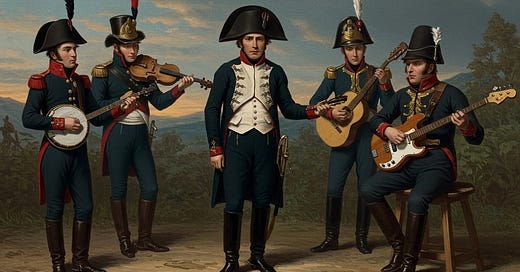



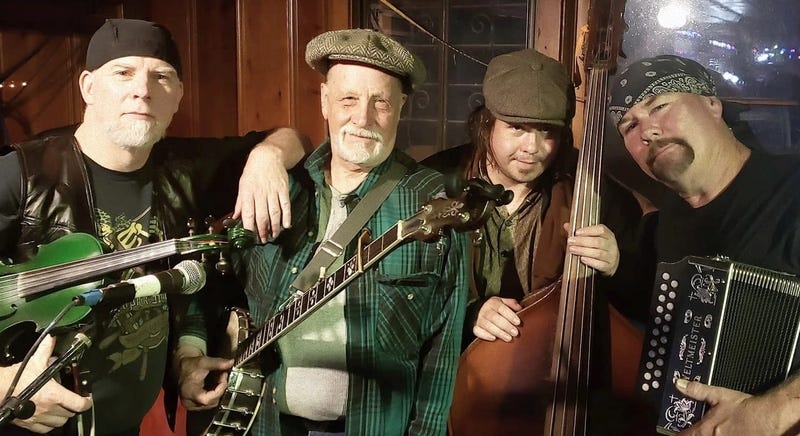


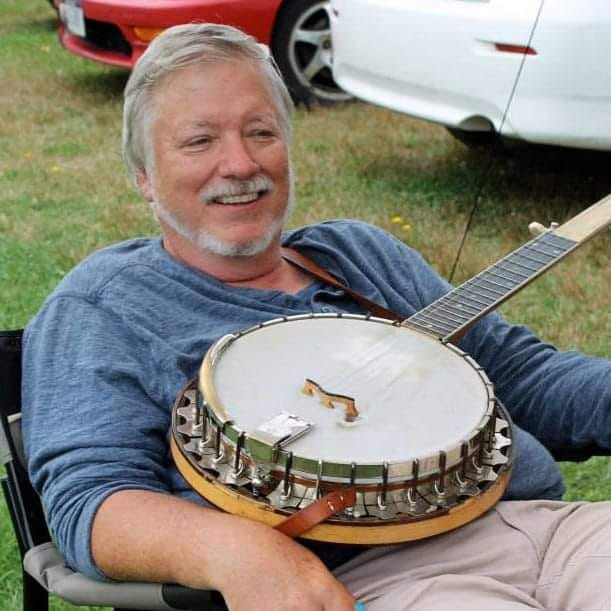

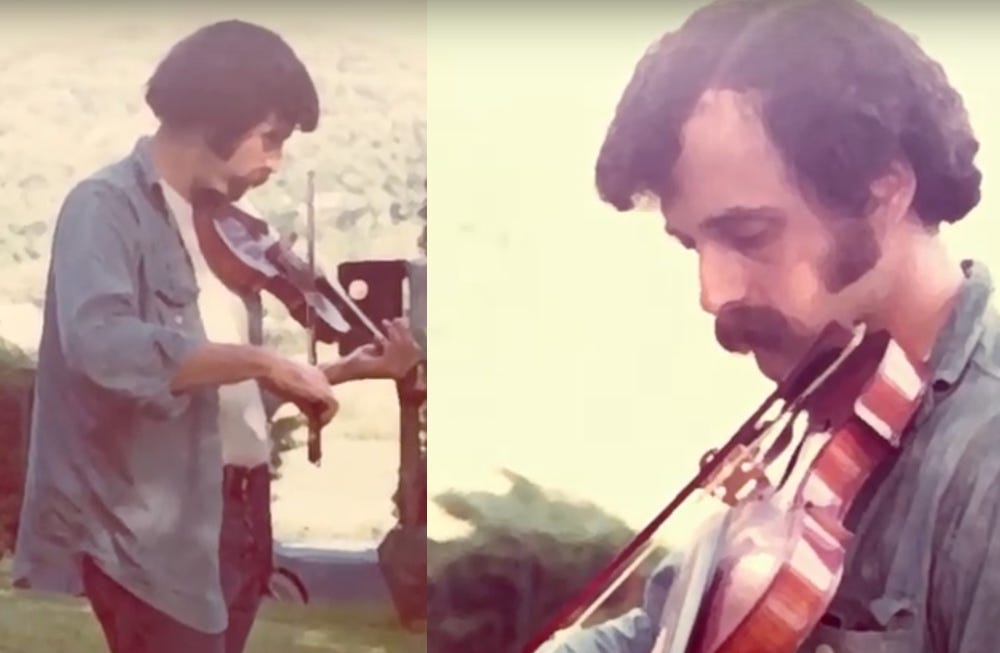
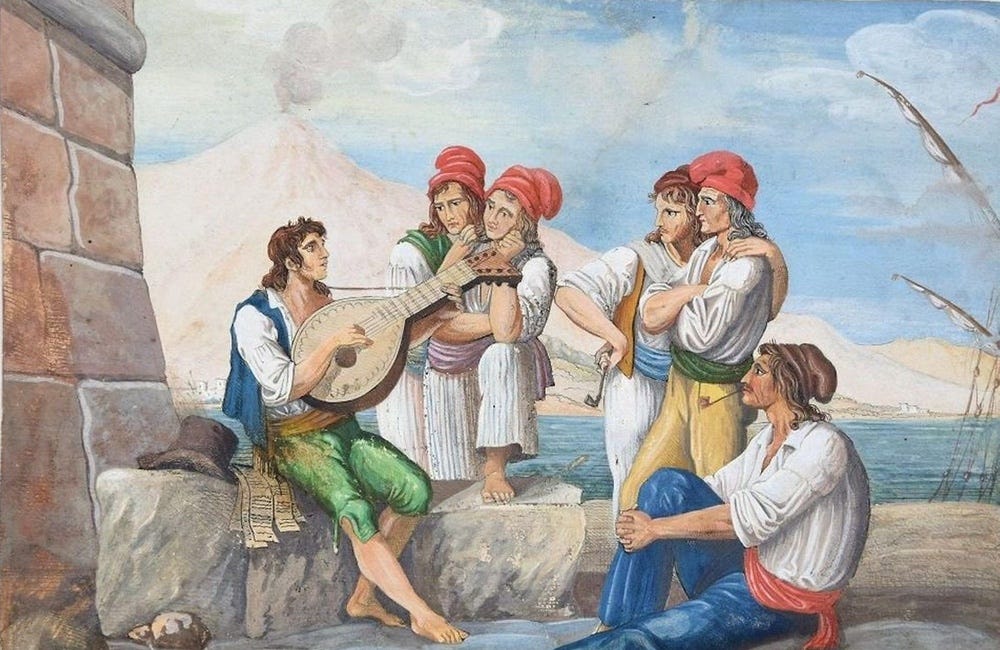








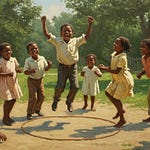
Share this post